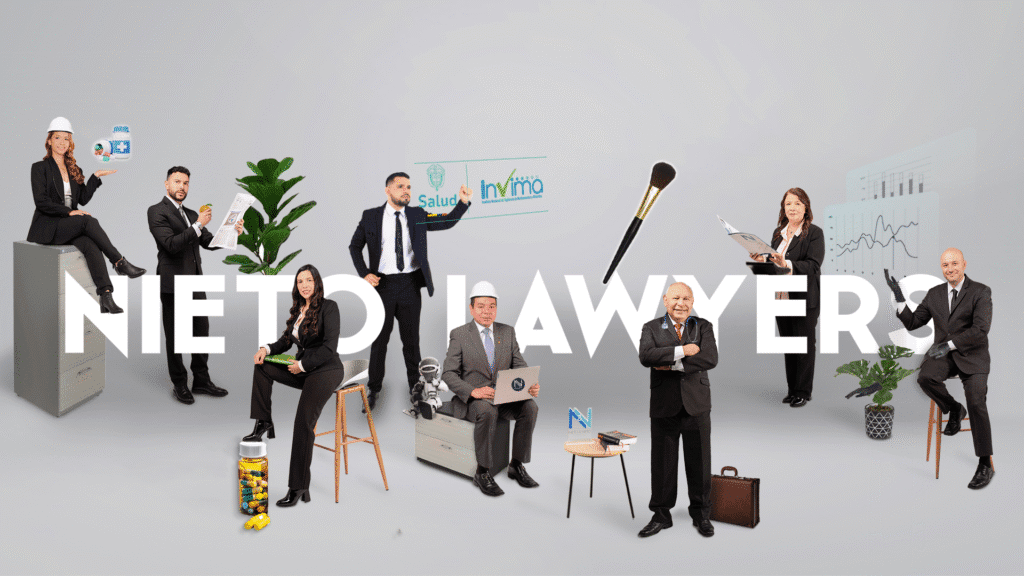Colombia’s Constitutional Court has transformed habeas data from protecting privacy to addressing artificial intelligence. Discover what this means for companies, startups, and foreign investors working with data in Colombia.
Why Does Habeas Data Matter for Your Business in Colombia?

Data is now the fuel of the global economy. In Colombia, the constitutional right of habeas data has evolved over the past three decades —from allowing citizens to correct personal information to protecting them against the risks of artificial intelligence. For any company entering the Colombian market —from fintechs and healthcare providers to e-commerce platforms and AI startups— understanding this legal framework is essential for compliance and risk management.
Key Milestones in Colombia’s Data Protection Jurisprudence

1. The Origins: Correction and Access
In the 1990s, Colombia’s Constitutional Court recognized habeas data as a fundamental right. Initially, it guaranteed access and correction of personal data held in public or private databases. Citizens could demand that banks, employers, or registries correct or delete inaccurate information.
2. The Right to Be Forgotten
Later rulings expanded habeas data to include the so-called “right to be forgotten,” particularly in cases involving outdated or harmful credit information. This principle limits how long sensitive data can be used against individuals, balancing economic efficiency with human dignity.
3. The Digital Era and New Risks
With the explosion of big data, social networks, and digital platforms, the Court refined its doctrine. It ruled that companies managing personal data must comply with strict principles of legality, purpose, necessity, and proportionality, in line with Law 1581 of 2012 (Colombia’s Data Protection Law).
4. Artificial Intelligence Under Scrutiny
Most recently, in landmark decisions such as T-323 of 2024, the Court examined the use of artificial intelligence tools (including ChatGPT) by judges and public entities. The Court did not ban AI, but imposed strict conditions:
- AI can only support human decision-making, never replace it.
- Authorities and companies must be transparent about when and how AI is used.
- AI use must be proportional, avoiding interference with core human rights.
- Risks must be constantly evaluated, especially when fundamental rights are at stake.
This positions Colombia as a regional pioneer in regulating AI through constitutional jurisprudence.
What Does This Mean for Companies and Investors?

If your business handles data in Colombia —whether as a healthcare provider, fintech, AI startup, or multinational expanding into Latin America— you must align with the evolving standards of habeas data. Failure to comply can result in:
- Regulatory investigations by the Superintendence of Industry and Commerce (SIC).
- Civil liability for damages caused by misuse of data.
- Reputational risks if consumer trust is compromised.
FAQs

Does Colombia recognize the “right to be forgotten”?
Yes. Through Constitutional Court rulings, individuals can request deletion or limitation of outdated or harmful data, especially in credit and digital reputation cases.
Can companies in Colombia freely use AI for decision-making?
Not without limits. The Court has made clear that AI cannot replace human judgment in decisions that affect fundamental rights. Transparency and accountability are mandatory.
Which laws regulate data protection in Colombia?
The core framework is Law 1581 of 2012, complemented by Decree 1377 of 2013, sector-specific rules, and Constitutional Court jurisprudence.
At Nieto Lawyers, we help international companies, startups, and investors comply with Colombia’s strict data and AI regulations.

Whether you are launching a fintech, expanding your e-commerce platform, or developing AI solutions, we ensure your business model is aligned with Colombian constitutional and regulatory standards.
For more information you can contact us habeasdata@nietolawyers.com
Contact us today to secure your project’s compliance and build trust in one of Latin America’s fastest-growing digital markets.
 WhatsApp
WhatsApp







